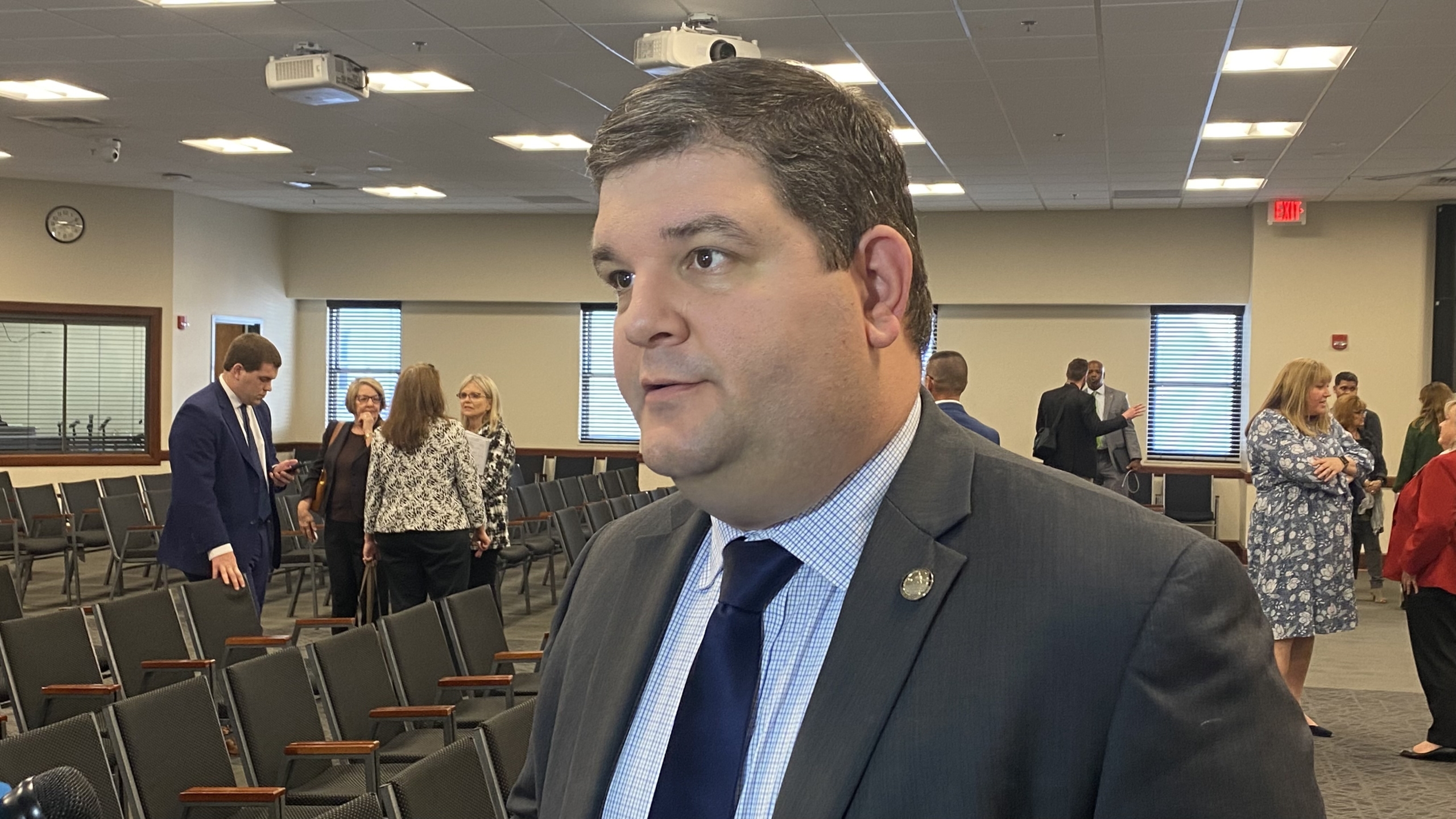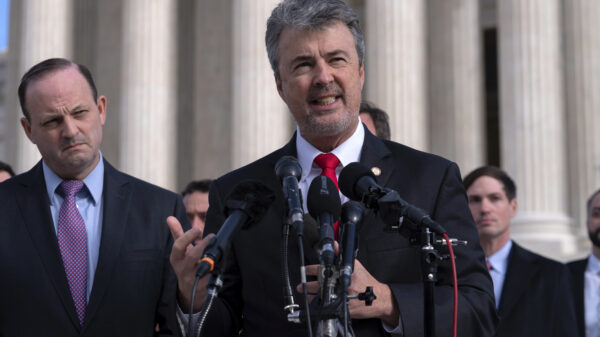State Representative Matt Simpson, R-Daphne, discussed working to shift legal precedent regulating the use of the death penalty during a Monday media appearance.
Simpson has proposed legislation for the 2026 Legislative Session, in partnership with state Senator April Weaver, R-Brierfield, which would allow the death penalty for cases involving the sexual abuse of children under 12 years old.
During a Monday appearance on FM Talk 1065’s “The Jeff Poor Show,” Simpson discussed growing Republican support for the bill and how, if passed, it may serve to change current legal precedent, which disallows the death penalty in cases that don’t result in a death.
The representative said he and Weaver’s collaboration on the bill began following a criminal investigation last month, which led to multiple arrests for sexual abuse and human trafficking of children in Bibb County. Eight suspects have currently been arrested and charged in connection with the investigation.
Simpson filed similar legislation during the 2025 Legislative Session, which passed in the House but failed to see a vote in the Senate.
“I always intended on refiling it this year to see if we can get something done,” Simpson said of the bill. “Senator Weaver reached out to me after what happened in Bibb County, and said, ‘We really have to address this issue. What can we do to get on board with this?’”
“I’m a big fan of hers, and when she came in and said, ‘What can we do to work together as a team to get this done?’ I think that’s the shot in the arm the bill needed,” he continued.
Simpson said he felt the bill has received broader public support from Republicans than it did during the previous session.
“I think we’ve got a lot of momentum,” Simpson said. “I think everybody has the idea to get this up—get this out.”
The representative pointed to endorsements from Alabama Governor Kay Ivey, Attorney General Steve Marshall, Senate President Pro Tem Senator Garlan Gudger, R-Cullman and House Speaker Representative Nathanial Ledbetter, R-Rainsville.
Simpson shared his hopes that the legislation may help overturn a U.S. Supreme Court ruling against the use of the death penalty in cases that don’t result in a death. The 2008 case Kennedy v. Louisiana found the death penalty in such cases violates the Eighth Amendment’s protection against cruel and unusual punishment.
Simpson cited that the court’s ruling was dependent on the rarity of laws allowing the death penalty for crimes that don’t result in death, with only six states having passed such legislation at the time.
Since Kennedy v. Louisiana, laws have been passed allowing the death penalty for child sexual abuse in five states. Florida passed legislation allowing the death penalty for sexual battery of a child under 12 in 2023. Similar bills were passed in Tennessee in 2024, as well as Idaho, Arkansas and Oklahoma in 2025.
Simpson expressed hope Alabama would become another state allowing the death penalty in such cases and shift legal precedent on the issue.
“There’s some momentum going here to challenge the Kennedy Case,” Simpson said. “I’d love to get Alabama on that list, and then we start saying, no, it’s not unusual, so you need to redecide your decision. The rationale for your decision is no longer valid.”
“What will have to happen is someone will have to be convicted of this offense. They will have to challenge that to the Supreme Court and say it’s unconstitutional. The Supreme Court would have to make a decision at that point. Well, what I want to do is be able to give a list of more states to be able to say no it’s not unusual,” he continued.
Simpson also said he’s hopeful the more conservative contemporary Supreme Court will have a different take on the issue than in 2008.
“We also have a new Supreme Court. Justice Roberts voted with the conservatives last time in a 5-4 decision in Kennedy, so I’m hopeful that the more conservative court will be willing to overturn the Kennedy decision,” Simpson added.
The Death Penalty Information Center, a nonprofit that provides data concerning the application of capital punishment, criticized Simpson’s legislation last session, which would have death penalty convictions for child sexual assault.
The organization pointed to the bill’s violation of Kennedy v. Louisiana, and argued using evidence from the case’s decision, that expansion of the death penalty to such cases could lead to further harm for child victims of sexual assault.
“Because child sex crimes are most often committed by family members or close family friends, advocates pointed out that the possibility of a death sentence would make family members less likely to report the crimes,” the organization wrote. “There would be incentive to kill child victims, to eliminate the sole witness to the crime, the advocates also noted. And children would be retraumatized by the intense experience of participating in a capital trial and appeals, which would delay their ability to heal from the experience.”



















































